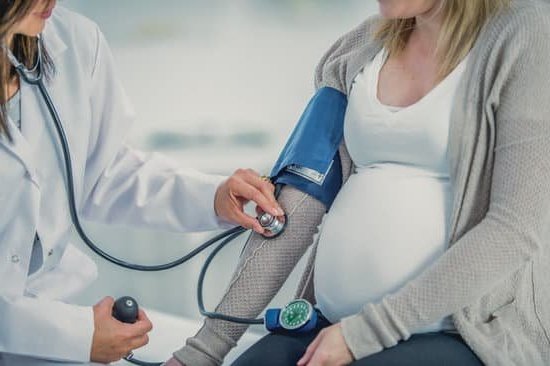The nutrition diet chart during pregnancy is crucial for the health and well-being of both the mother and the growing baby. A balanced and nutrient-rich diet is essential to ensure optimal development and growth during pregnancy.
This article will provide valuable information on the importance of nutrition during pregnancy, the specific nutritional requirements for each trimester, recommended foods to include in a pregnancy diet chart, as well as foods to avoid. Additionally, expert advice and recommendations for creating a personalized nutrition diet chart during pregnancy will be discussed.
During pregnancy, the body undergoes numerous changes that require an increased intake of essential nutrients to support the developing fetus. Each trimester comes with its own set of nutritional needs, and it is important for expectant mothers to be mindful of these requirements to ensure a healthy pregnancy. This article will delve into the specific nutritional requirements for each trimester and offer valuable insights into creating a well-balanced diet plan.
Moreover, the role of vitamins and minerals in a pregnancy diet will be explored in detail, shedding light on their significance in promoting healthy fetal development. The article will provide practical tips for maintaining a healthy diet during pregnancy while debunking common myths and misconceptions about pregnancy nutrition. Expectant mothers can also look forward to gaining insights into creating a personalized nutrition diet chart tailored to their individual needs based on expert advice and recommendations provided here.
Nutritional Requirements During Each Trimester
Pregnancy is a crucial time for both the mother and the growing baby, and maintaining proper nutrition is essential for a healthy pregnancy and baby. Each trimester of pregnancy comes with its own set of nutritional requirements to support the growth and development of the fetus. It’s important for expecting mothers to be aware of these specific needs in order to create a nutrition diet chart that will provide the necessary nutrients for both themselves and their babies.
During the first trimester, it’s important for pregnant women to focus on foods that are rich in folate, iron, and protein. These nutrients are vital for the initial growth and development of the baby. Some foods to include in a pregnancy diet chart during the first trimester are leafy greens, lean meats, legumes, and citrus fruits. Additionally, it’s crucial to stay hydrated by drinking plenty of water throughout the day.
As the pregnancy progresses into the second trimester, additional nutritional requirements come into play. Calcium becomes crucial at this stage for bone development and maintaining overall health. Foods such as dairy products, fortified plant-based milks, and leafy green vegetables can ensure an adequate intake of calcium. Omega-3 fatty acids found in fish or supplements can also help support brain and vision development in the baby.
Moving into the third trimester, iron-rich foods are particularly important as they support the growth of red blood cells that supply oxygen to both mother and baby. Incorporating foods like lean red meat, poultry, beans, nuts, seeds, and dried fruit can help maintain healthy iron levels during this critical stage of pregnancy.
| Trimester | Nutritional Focus |
|---|---|
| First Trimester | Folate, Iron, Protein |
| Second Trimester | Calcium, Omega-3 Fatty Acids |
| Third Trimester | Iron-rich Foods |
Foods to Include in a Pregnancy Diet Chart
During pregnancy, it is essential for expectant mothers to consume a well-balanced and nutritious diet in order to support the growth and development of the baby. A nutrition diet chart during pregnancy plays a crucial role in providing the necessary nutrients for both the mother and the baby. It is important to include a variety of foods that are rich in essential vitamins, minerals, and macronutrients to ensure a healthy pregnancy.
When creating a pregnancy diet chart, consider incorporating the following foods:
- Fruits: Fruits such as oranges, apples, bananas, and berries are rich in vitamins, minerals, and fiber. They provide essential nutrients that are beneficial for both the mother and the baby.
- Vegetables: Leafy greens, carrots, broccoli, and sweet potatoes are excellent sources of vitamins A and C. They also contain fiber which aids in digestion and supports overall health.
- Whole grains: Whole grain foods like brown rice, quinoa, oats, and whole wheat bread provide fiber, B vitamins, and essential minerals such as iron and magnesium.
- Lean protein: Lean meats, poultry, fish, eggs, tofu, legumes, and nuts are vital sources of protein which is essential for the growth of the baby’s tissues and organs.
In addition to these foods, it is important to stay hydrated by drinking plenty of water throughout the day. Consuming a variety of nutrient-dense foods ensures that both the mother and the growing baby receive all necessary nutrients for a healthy pregnancy. Consulting with a healthcare professional or a registered dietician can help pregnant women create personalized nutrition diet charts tailored to their specific dietary needs.
Foods to Avoid During Pregnancy
During pregnancy, it is important to pay close attention to the foods that should be avoided in order to maintain a healthy and safe diet for both the mother and the developing baby. There are certain foods that can pose potential risks and should be eliminated from the nutrition diet chart during pregnancy.
One of the most crucial foods to avoid during pregnancy is raw or undercooked meats, as they can harbor harmful bacteria such as salmonella, E. coli, or listeria. These bacteria can lead to foodborne illnesses that may have serious consequences for both the mother and the baby. It is also recommended to avoid hot dogs, deli meats, and unpasteurized dairy products for the same reason.
In addition, pregnant women are advised to steer clear of certain types of fish with high levels of mercury, such as shark, swordfish, king mackerel, and tilefish. Mercury can be harmful to the baby’s developing nervous system. It is best to opt for low-mercury fish like salmon, shrimp, and catfish instead.
Finally, caffeine intake should be limited during pregnancy as it has been associated with an increased risk of miscarriage. It is recommended to consume no more than 200 milligrams of caffeine per day which is roughly equivalent to one 12-ounce cup of coffee.
By being mindful of these food restrictions and making informed choices, expectant mothers can ensure a safe and healthy nutrition diet chart during pregnancy which is essential for their overall well-being and that of their unborn child.
Sample Nutrition Diet Chart for Each Trimester
During each trimester of pregnancy, a woman’s nutritional needs change as her body works to support the growth and development of her baby. Creating a well-balanced nutrition diet chart during pregnancy is essential to ensure both the mother and her baby are receiving the necessary vitamins, minerals, and nutrients for a healthy pregnancy.
In the first trimester, it is important for pregnant women to focus on foods that are rich in folate, iron, calcium, and protein. Foods such as leafy greens, citrus fruits, whole grains, lean meats, dairy products, and legumes are all beneficial additions to a pregnancy diet chart. These foods can help support the development of the baby’s neural tube, red blood cells, bone health, and overall growth.
As the pregnancy progresses into the second trimester, additional nutritional requirements come into play. This includes an increased need for omega-3 fatty acids found in fish, choline for brain development found in eggs and lean meats, as well as vitamin D and calcium for bone health. Adding foods such as salmon, eggs, lean beef or poultry, fortified dairy products or plant-based milk alternatives can be valuable components of a nutrition diet chart during pregnancy during this stage.
In the third trimester of pregnancy, the emphasis shifts towards foods that are high in fiber to help with digestion and prevent constipation. Additionally, including sources of healthy fats such as avocados and nuts can aid in the baby’s brain development.
It is important to maintain a balanced diet that includes plenty of fruits and vegetables along with whole grains and lean proteins. Following a well-rounded nutrition diet chart during pregnancy throughout each trimester sets the stage for a healthy outcome for both mom and baby.
The Role of Vitamins and Minerals in a Pregnancy Diet
During pregnancy, the body’s need for vitamins and minerals increases to support the growing fetus and the mother’s changing body. It is important for pregnant women to consume a variety of nutrients to ensure a healthy pregnancy and baby. Here are some essential vitamins and minerals that should be included in a pregnancy diet chart:
- Folic Acid: This B vitamin is crucial for preventing neural tube defects in the baby. Pregnant women should aim to get 600-800 micrograms of folic acid daily through foods such as leafy greens, citrus fruits, and fortified cereals.
- Iron: Iron is necessary for producing hemoglobin, which carries oxygen to the cells. Pregnant women need about 27 milligrams of iron per day, which can be found in lean red meat, poultry, fish, beans, and fortified cereals.
- Calcium: Calcium is essential for building strong bones and teeth in both the mother and the baby. Pregnant women should consume around 1,000 milligrams of calcium daily from sources like dairy products, leafy greens, tofu, and almonds.
- Vitamin D: Vitamin D helps the body absorb calcium and supports the baby’s bone development. Good sources of vitamin D include fortified milk, fatty fish like salmon or mackerel, and sunshine exposure.
In addition to these essential nutrients, incorporating a variety of fruits, vegetables, whole grains, lean protein, and healthy fats into a pregnancy diet chart can provide a well-rounded intake of vitamins and minerals necessary for a healthy pregnancy. It is important for pregnant women to consult with their healthcare provider to ensure they are meeting their individual nutritional needs during this critical time.
Tips for Maintaining a Healthy Diet During Pregnancy
Maintaining a healthy diet during pregnancy is essential for the well-being of both the mother and the developing baby. A balanced and nutritious diet can help prevent complications and promote healthy fetal development. Here are some tips to help expecting mothers maintain a healthy diet throughout their pregnancy.
Eat a Variety of Nutrient-Dense Foods
It’s important for pregnant women to consume a wide range of nutrient-dense foods to ensure they are getting all the necessary vitamins and minerals. This includes plenty of fruits, vegetables, lean proteins, whole grains, and healthy fats. It’s also important to include sources of calcium, iron, and folic acid in the daily diet.
Stay Hydrated
Proper hydration is crucial during pregnancy, as it can help prevent common issues such as constipation and dehydration. Pregnant women should aim to drink at least 8-10 cups of water each day. This helps support the increased blood volume, amniotic fluid, and overall hydration needs that come with pregnancy.
Avoid Excess Sodium and Sugar
High levels of sodium can lead to water retention and increased blood pressure, which can be harmful during pregnancy. It’s important for expectant mothers to limit their intake of processed foods and choose low-sodium options when possible. Similarly, consuming excess sugar can contribute to excessive weight gain and gestational diabetes. Instead of sugary snacks or beverages, opt for healthier alternatives like fruits or natural sweeteners.
By following these tips and creating a personalized nutrition diet chart during pregnancy, expectant mothers can ensure that they are providing their bodies with the nutrients needed for a healthy pregnancy. Consulting with a healthcare provider or nutritionist can also provide additional guidance on maintaining a healthy diet throughout each trimester of pregnancy.
Common Myths and Misconceptions About Pregnancy Nutrition
There are many myths and misconceptions surrounding pregnancy nutrition, which can lead to confusion and anxiety for expecting mothers. It’s important to debunk these myths and provide accurate information to ensure that pregnant women are making informed choices about their diet and nutrition. Understanding the truth about pregnancy nutrition can help alleviate unnecessary stress and promote a healthier pregnancy for both mother and baby.
Myth: “Pregnant Women Need to Eat for Two”
One common misconception about pregnancy nutrition is the belief that women need to double their food intake because they are “eating for two.” In reality, this is not accurate. While it’s true that pregnant women have increased energy needs, especially during the second and third trimesters, the idea of doubling food intake is a myth.
Quality over quantity is key when it comes to pregnancy nutrition. It’s more important to focus on consuming nutrient-dense foods rather than simply increasing the amount of food consumed.
Myth: “Avoid All Seafood During Pregnancy”
Another widespread myth is that pregnant women should avoid all types of seafood due to concerns about mercury levels. While it’s true that high levels of mercury can be harmful to a developing fetus, there are many safe options for including seafood in a pregnancy diet chart.
Certain types of fish, such as salmon, shrimp, and cod, are low in mercury and high in beneficial nutrients like omega-3 fatty acids, which are important for fetal brain development. It’s important for expecting mothers to include these safe seafood options as part of a balanced diet during pregnancy.
Myth: “You Should Steer Clear of All Caffeine”
Many women believe that they must completely eliminate caffeine from their diet once they become pregnant. While excessive caffeine intake can potentially pose risks during pregnancy, moderate consumption is generally considered safe.
The American College of Obstetricians and Gynecologists advises that up to 200 milligrams of caffeine per day (equivalent to one 12-ounce cup of coffee) is unlikely to have any negative effects on a pregnancy. It’s essential for expecting mothers to be mindful of their caffeine intake but eliminating it entirely may not be necessary unless specifically advised by a healthcare provider based on individual circumstances.
Expert Advice and Recommendations for Creating a Personalized Nutrition Diet Chart During Pregnancy
In conclusion, the importance of maintaining a nutritious diet during pregnancy cannot be overstated. It not only ensures the health and well-being of the mother but also plays a crucial role in the development of the growing fetus. The nutritional requirements during each trimester vary, making it essential for expecting mothers to pay close attention to their diet and ensure they are consuming all the necessary nutrients.
Creating a personalized nutrition diet chart during pregnancy is key to meeting these specific needs. By including foods rich in essential vitamins and minerals, such as leafy greens, fruits, lean protein, and whole grains, expectant mothers can support their own health and that of their baby. Additionally, it is important to avoid certain foods that may pose risks during pregnancy, such as unpasteurized dairy products, raw or undercooked meat, and certain types of fish high in mercury.
Expert advice and recommendations from healthcare professionals can help expecting mothers navigate through the complexities of pregnancy nutrition. Seeking guidance from a registered dietitian or healthcare provider can aid in creating a personalized nutrition diet chart that meets individual needs and preferences. With their expertise, pregnant women can receive tailored recommendations for specific vitamins and minerals crucial for fetal development, ensuring a healthy pregnancy journey for both mother and baby.
Frequently Asked Questions
What Is a Good Nutritional Meal Plan for Pregnancy?
A good nutritional meal plan for pregnancy should include a variety of nutrient-dense foods such as fruits, vegetables, whole grains, lean protein, and healthy fats. It’s important to consume adequate amounts of folate, iron, calcium, and protein to support the growth and development of the baby.
Pregnant women should also stay hydrated by drinking plenty of water and limit their intake of processed foods, added sugars, and caffeine.
What Is the Best Diet to Be on While Pregnant?
The best diet to be on while pregnant is one that focuses on consuming a wide range of nutrient-rich foods to support both the mother’s health and the baby’s development. This includes plenty of fruits and vegetables, whole grains, lean proteins like poultry and fish, dairy or dairy alternatives for calcium, and healthy fats from sources like avocado or nuts.
It’s also important to avoid alcohol and limit caffeine intake during pregnancy.
What Is the Proper Diet Nutrition of the Pregnant Mother?
The proper diet nutrition for a pregnant mother involves ensuring that she is consuming enough essential nutrients for her own health as well as for the growth and development of the baby. This includes focusing on getting enough folate, calcium, iron, protein, and other vitamins and minerals through a balanced diet.
In addition to food choices, it’s important for pregnant women to manage weight gain appropriately and talk to their healthcare provider about any specific dietary concerns or needs during pregnancy.

Welcome to my fertility blog. This is a space where I will be sharing my experiences as I navigate through the world of fertility treatments, as well as provide information and resources about fertility and pregnancy.





